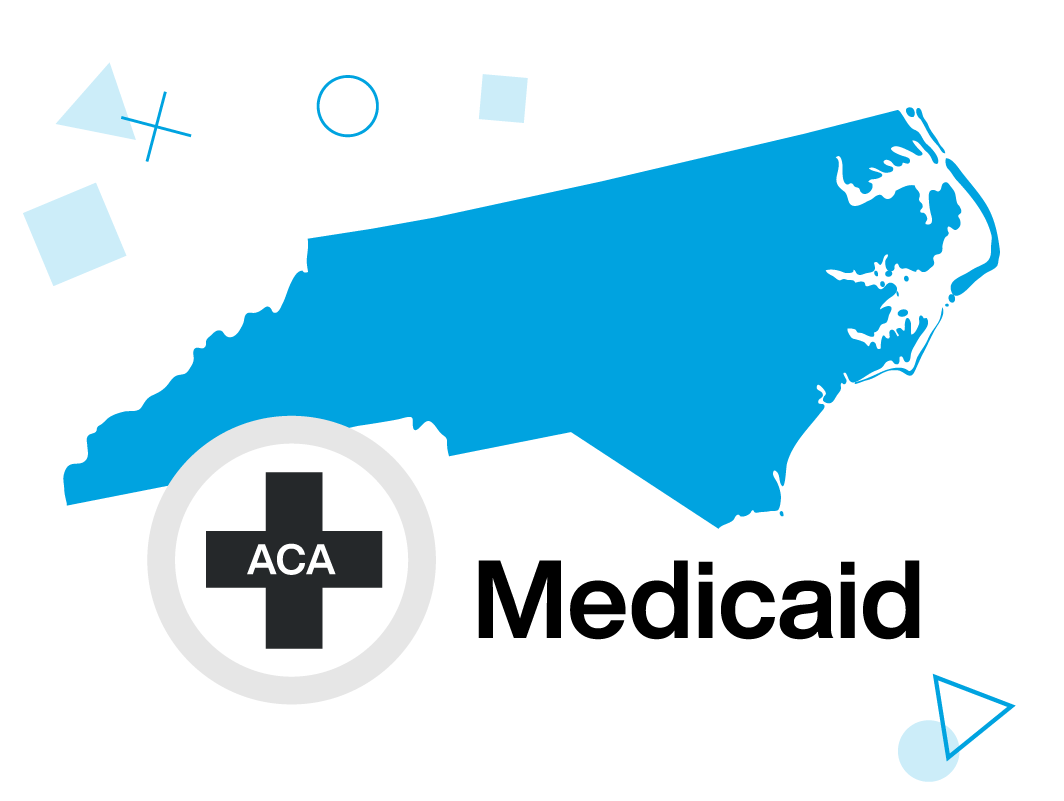
In December 2023, North Carolina joined 40 other states and Washington D.C. in expanding Medicaid.
And less than a year after adopting the program, there has been an influx in participation throughout the Tar Heel State.
The Details of North Carolina’s Medicaid Expansion
As a result of the amendment to the state’s health legislature, adults between the ages of 19 and 64, who earn up to 138% of the federal poverty level, may be newly eligible for Medicaid enrollment.
The coverage is extensive, including a wide breadth of services, such as primary care, hospital admissions, maternity care, vision and hearing, dental care, and more.
In addition, Medicaid covers doctor visits, annual check-ups, emergency care, mental health services, and more — typically at little to no cost to the consumer.
And after only five months after taking effect, North Carolina has already seen more than 450,000 state residents sign up for coverage, and over a million prescriptions covered, as documented in a press release issued by North Carolina Governor, Roy Cooper.
These enrollment statistics mirror those seen in other states, such as Missouri and Oklahoma, which expanded Medicaid coverage in 2021 and 2020, respectively.
What Is Medicaid Expansion?
Medicaid expansion, first introduced in 2010 as part of the Affordable Care Act, made it so that Americans’ income levels determine eligibility for government-subsidized healthcare, rather than the presence or absence of a disability.
Before the ACA introduced this change in eligibility, Medicaid was largely inaccessible to non-disabled adults under 65, unless they had young children. Even then, the income limits for qualifying as a parent or caretaker were low.
Put simply, the ACA’s Medicaid expansion made it possible for millions of low-income adults to obtain quality health coverage through the federal government.
North Carolina is the latest state to adopt the expansion, following South Dakota, where the expansion took effect on July 1, 2023.
Medicaid Expansion on the Horizon
If the 10 remaining states adopted Medicaid expansion, over 2.3 million Americans would gain coverage in 2024 alone, according to data provided by the Urban Institute. This includes those who would become newly eligible and those who are currently eligible but uninsured.
Moreover, the coverage expansion would have a significant impact on residents in states that adopt it. For instance, the Center on Budget and Policy Priorities reports that nearly 20,000 lives have been saved in states with the expansion, while 15,600 lives could be lost in states without it.
Besides reducing the mortality rate, the Center also cites that expansion contributes to stronger financial security, reducing medical expenses, on average, by over $1,100 per person.
Vice President Kamala Harris, the Democratic nominee for president, has previously spoken about increasing healthcare access and introducing a public option. Requiring expansion in the remaining 10 states would be a logical first step, as she seeks to make quality coverage more available.
Healthcare on The Ballot This Fall
A recent poll from the Pew Research Institute shows that healthcare affordability is a top priority for voters heading into election season.
And with November drawing near, much is at stake regarding the future of healthcare and the ACA, as the Trump administration is once again campaigning for a repeal and replacement of the law.
On the other hand, Democratic nominee Kamala Harris is likely to bolster many of the programs first instituted by the Biden administration. This includes the expansion of Premium Tax Credits (PTCs), which are currently set to expire in 2025.
Under the program, individuals with income up to 150% of the federal poverty level may obtain health plans for $0 monthly premiums and substantially lower deductibles. Individuals with household incomes beyond 400% of the FPL may also qualify for PTC aid.
ACA Compliance Remains A Must
The outcome of this November’s election will likely have significant implications for ACA compliance in 2025 and beyond.
While Democrats and Republicans continue to debate the details of subsidies, government-sponsored coverage, and the like, one component of the healthcare law remains largely outside of the conversation — the Employer Shared Responsibility Provisions, commonly referred to as the Employer Mandate.
Under the ACA’s Employer Mandate, organizations with 50 or more full-time and full-time equivalent employees must offer affordable Minimum Essential Coverage that also meets Minimum Value to at least 95% of their full-time staff.
If your company needs help managing compliance with the ACA’s Employer Mandate, reach out to Trusaic to learn about our comprehensive solution, ACA Complete.
Our solution automates many of the manual responsibilities associated with compliance, such as extending offers, documenting enrollment/declinations, and generating the annual 1094-C and 1095-C forms.
Summary
Article Name
North Carolina Sees Surge in Enrollment Following Medicaid Expansion
Description
North Carolina recently became the 40th state to adopt the ACA’s Medicaid Expansion, and five months in is already seeing the benefits. Read more.
Author
Maxfield Marquardt
Publisher Name
https://acatimes.com
Publisher Logo
